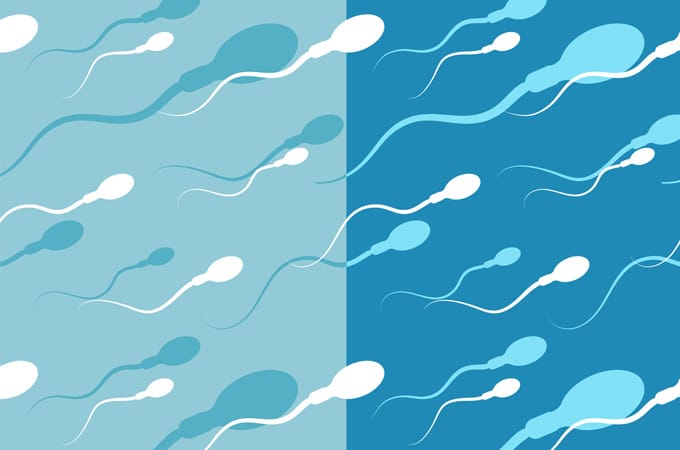Medical contribution by Cori Tanrikut, M.D.
Cigdem (“Cori”) Tanrikut, MD, FACS, is board certified in urology. Her research endeavors include assessing how lifestyle and medications may impact male reproductive health, sperm banking trends, and sperm-related factors. Dr. Tanrikut optimizes treatment outcomes for patients affected by male factor infertility.
Most people probably don’t give much thought to sperm development until perhaps conception appears that it’s taking longer than it should. The good news, there are some very tangible lifestyle changes that men can make to improve their sperm health and overall fertility.
It is generally known that most men produce millions of new sperm every day. However, you might not know that these new sperm take about 74 days to fully mature. You also might not realize that when sperm are initially formed within the testicles, they lack the ability to swim forward or fertilize an egg until they make their way through the reproductive tract.
Keeping sperm healthy
Sperm are living cells within the male body and are subject to whatever conditions the rest of the body is exposed to throughout their development cycle. Extreme temperatures, smoking, drug use, and poor diet can all impact the quality of sperm. For this reason, men looking to increase the chances of conception should consider making healthful lifestyle changes.
SGF reproductive urologist and male fertility specialist, Dr. Cori Tanrikut, tells her patients that a “heart-healthy” lifestyle is a “sperm-friendly” lifestyle:
- eating a good diet,
- exercising regularly and moderately to maintain a healthy weight,
- avoiding tobacco and marijuana use, and
- consuming alcohol and caffeine in moderation are wise choices.
Because of the lifecycle of sperm production, once a lifestyle change has been made—such as quitting smoking—it takes about 2 ½ to 3 months for those healthier sperm to appear in the ejaculate.
It’s also important to note that too much heat on or near the testicles can impair sperm production. Sperm counts and quality can be adversely affected by hot baths, hot tubs, and long trips to the sauna or steam room. Also, be mindful to not rest laptops directly on the lap but instead place a pillow or book in between.
Equally important, men should consider that use of medications for the treatment of “low T” (testosterone) in an attempt to address symptoms such as low energy or decreased sex drive may actually contribute to a low sperm count. Men should always be under the advisement of a physician if considering medication for the treatment of low testosterone.
More about sperm development
When considering conception, it is also important to optimize the number of sperm available to reach and fertilize the egg. In this effort, it is recommended that men abstain from ejaculating for 2 to 3 days. Men who ejaculate more often have lower volumes of ejaculate and lower sperm counts in each ejaculate. This rule goes for couples who are trying to conceive on their own as well as men that are producing a semen sample for fertility treatments, such as IUI or IVF. Find out more about male fertility and sperm production here.
- Read more: Tips for Improving Male Infertility Naturally
- Read more: Diagnosing and Overcoming Male Factor Infertility
To schedule a semen analysis, which is recommended at the very start of the infertility workup, first find a location convenient to you. To schedule a virtual consultation with an SGF physician, please call the New Patient Center at 1-888-761-1967 or click below.
Editor’s Note: This post was originally published in July 2012 and has been updated for accuracy and comprehensiveness as of June 2021.







